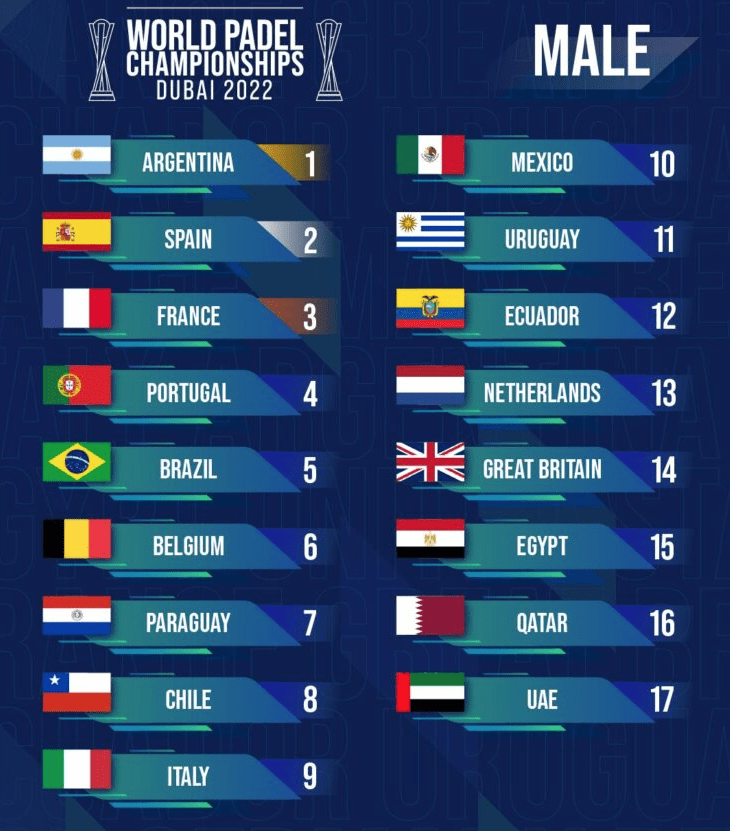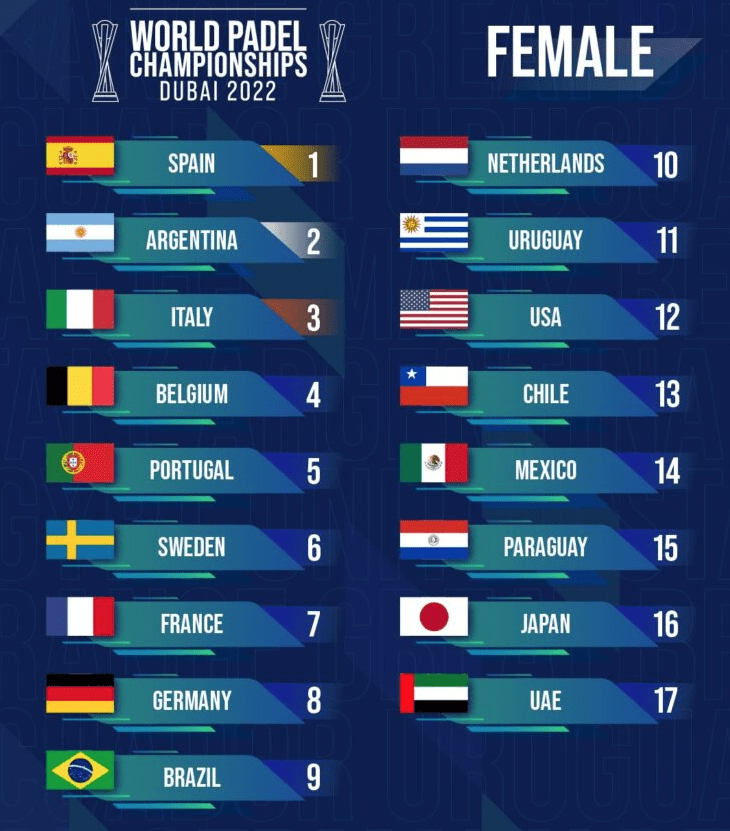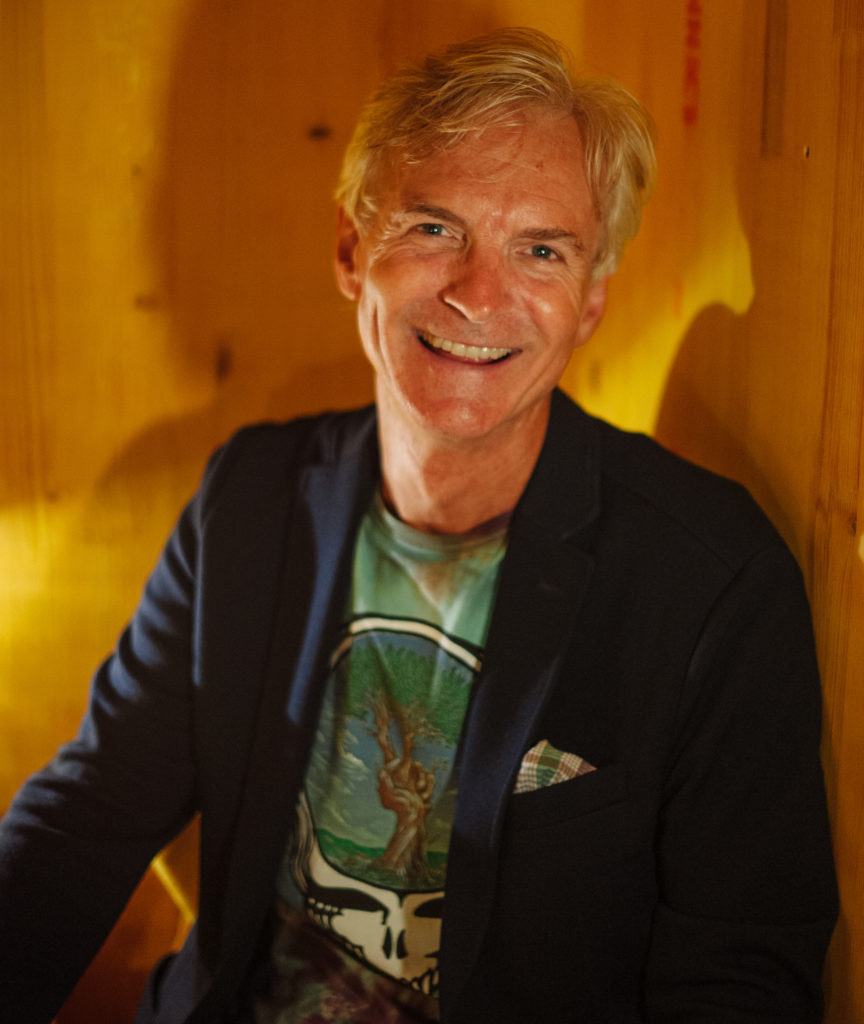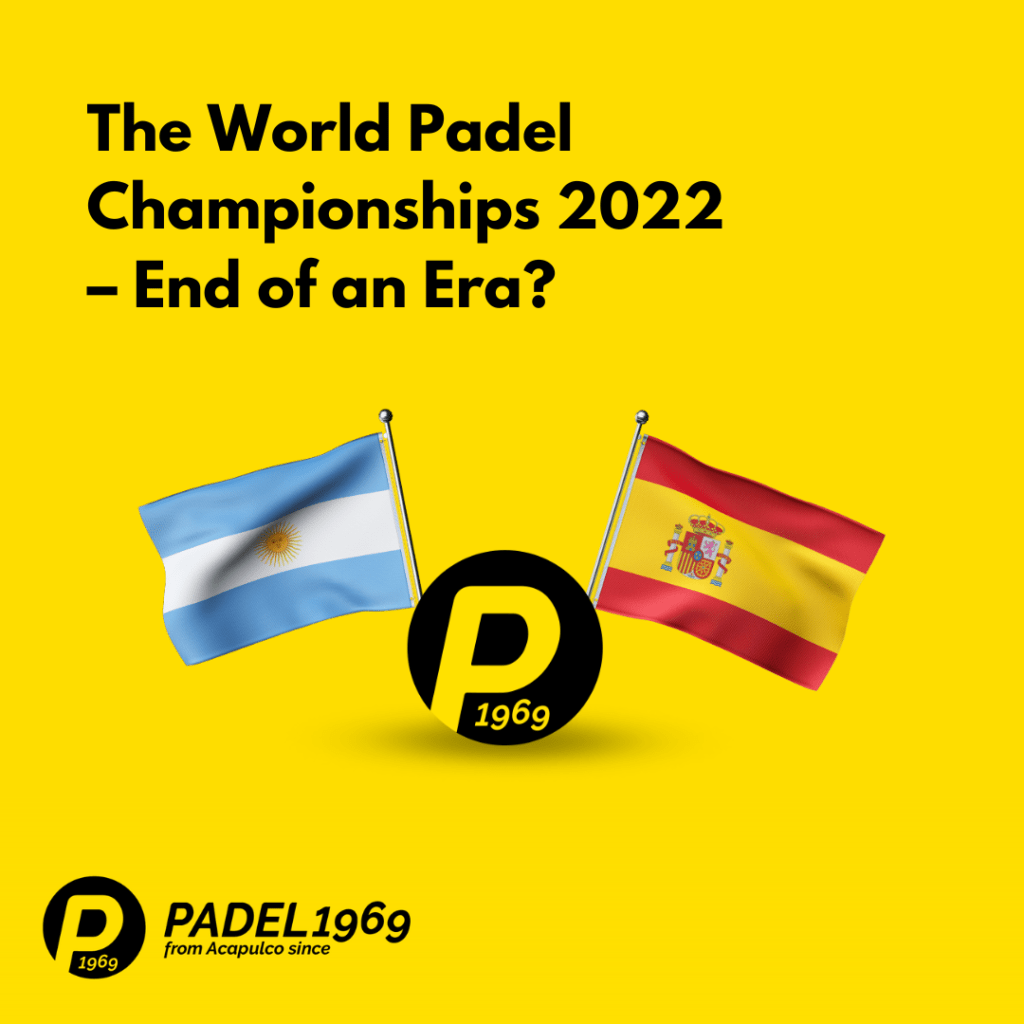Padel tennis (pronounced pádel in Spanish) is frequently cited as the fastest growing sport in the world. It’s clearly in ascendancy, with exactly 50 national padel federations now in place according to the FIP (International Federation of Padel). The sport has its sights set on becoming an Olympic sport.
Pro tournaments, one after another, are breaking records in terms of attendance and online viewing. And for the recently completed the 16th Padel World Championships, which were held outdoors in November 2022 in Dubai, there were a record 38 countries that applied to participate on the men’s side and 34 on the women’s side. Only 16 teams could participate and there was the notable absence of Germany’s men’s team, previously ranked 8th.
As Queco Catalán, Chief Sports Officer at the FIP, said in an interview while attending the qualifying preliminaries at Derby, the country teams ranked 4th through 16th all have similar levels which means that it’s an open field as to who gets the 4th berth in the semi-finals. I think Catalán was being a tad generous for the tail-enders including Egypt and the two host countries UAE and Qatar (which was changed due to conflict with the Football World Cup).
2022 World Championship Results
The World Championships are held every two years, although there was an aberration last year caused by the pandemic. This year’s competition provided high entertainment. If the finalists of the men’s and women’s tournament seemed to be appointed in advance (both were between Spain and Argentina), there were some tremendous matches and surprises along the way. Spanish and Argentinians dominate the male and female top 30 individually ranked players. There’s just one Brazilian (veteran leftie, Pablo Lima, #11) on the men’s side {source FIP} and a French (Alix Collomban #21) and Portuguese (Sofia Araujo #22) woman among the top 30. {source FIP}
Nonetheless, below the top 2 teams, there were some upsets and surprises. Of note, the Belgian (6th seed) women’s team knocked off France (4th seed) in the quarter-finals, and the Swedish women’s team ended up 6th overall, having qualified without being seeded in the top 16 prior to the tournament. On the men’s side, the Portuguese, relative minnows who were not in the top 16 prior to the Championships, beat the Brazilians (ranked third) to get through to the semi-finals. They ended up 4th overall.


El Clásico final: Spain versus Argentina
Without a doubt, the men’s final was the highlight of the entire championships. It was nothing short of epic.
The first match saw Agustín Tapia (world ranking #12) paired up with Fede Chingotto (#10) against the daunting team of Paquito Navarro (# 3) and Juan Lebrón (#1). If that weren’t enough, Tapia injured himself at the beginning of the second set running into the door as he chased a ball from Navarro.
In the end, the Argentines fell to the valiant Spaniards, with Lebrón nursing a thigh injury himself, 3-6, 7-5, 6-3. Spain was up 1-0.
The second matchup featured Ale Galán (co-ranked #1 with his normal partner Lebrón) with the leftie Arturo Coello (#9) against Franco Stupaczuk (#3) and Martín Di Nenno (#4). The match was intense, although the final score made it look like an easy win 6-3, 6-2 for the Argentinian pair.
The teams were now deadlocked 1-1. For the rubber match, the Argentines fielded two ‘ancients,’ Sanyo Gutierrez #11 and Fernando Belasteguín #6 (respectively 38- and 43-year-olds) against two much younger Spanish talents Momo González #14 and Alex Ruiz #13. On paper, the Argentines were favored, but at this level, with the quality of players on display, anything was possible. It was a dream-deciding match. Almost inevitably, it went down to the wire.
The Argentine veterans secured a 6-4, 5-7, 6-3 victory and thus secured their 11th World Championship crown. Spain has won the five others, including the 2021 edition. The tension and pressure were evident in the post-match interview where Bela allowed the floodgates to open, signing off one of the most extraordinary years of his long career. You can watch the final replay here.
On the women’s side, where the Spaniards completely dominate the top 30, holding 24 places, a Spanish victory seemed pretty written in the cards. There are just 4 Argentine women in the top 30. As a result, Spain won relatively easily its 8th World Champion title, and fifth consecutive victory. Argentina has won the other 8 women’s titles. With so many top ranked players, to prove its excellence, Spain had the luxury of playing its B string in the semi-final in sweeping by Belgium.
Signs of the end of an era?
If Spain and Argentina continue to dominate the world rankings and the World Championships, there are signs that the rest of the world is keen to catch up. Is this the end of a dynasty?
I think we’re probably six years away from having other countries than Spain and Argentina vying for the top spot. Among the juniors, we see that Spain and Argentina are again dominant, with mostly the same cast of countries in the remaining slots. I note, though, GB and USA are in the top 10 for both men and women. Displacing the Spanish and Argentinian hegemony will require a concerted effort by the local structure, including specialized coaching.
It will also take playing with and against the elite players (i.e. in Spain) in order to raise their levels sufficiently. It’s a little like football, where smaller countries will need to have players who play in the elite overseas leagues.
The Future is Bright
The growth in padel tennis courts and players is booming in many countries, such as Italy, Sweden, Belgium, Denmark, France, and the Netherlands. Another good sign for the future of professional padel was that, for the first time in the World Championship’s history, there was a prize pool of €500,000 on offer, that was distributed equally between men and women. The winning country received €45,000 while the runner-up received €30,000. Read more.
We hope you found this article interesting. Please share your feedback and comments below. We are also happy if you share this article with your Padel friends.

Minter Dial, Senior Advisor at PADEL1969
Minter Dial has been playing padel since 1974. He started playing the first year there was a ‘public’ padel court at the Marbella Club. His father, Victor Dial, actually played on the original Corcuera court in Acapulco (built-in 1969), teaming up with many well-known people who loved padel, including Henry Kissinger. Having played padel in over 12 countries and currently still playing 3-4 times a week, he’s actively involved in the international padel community. His credentials in racquet sports are wider, including having been a teaching tennis pro, a member of the Yale squash team, getting a decent handicap in real tennis, and having tried his hand at 20 different racquet sports. His broader family (on the French side) has been deeply involved with padel tennis as well, including his accomplished cousin, Nallé Grinda, who was director of the Miami WPT 2022 and is still competing on the pro tour.
Minter Dial is a professional speaker, author, and elevator, specialized in leadership, branding, and transformation. An agent of change, he’s a three-time entrepreneur, who has exercised twelve different métiers and moved country fifteen times. Minter’s core career stint of 16 years was spent as a top executive at L’Oréal, a member of the worldwide Executive Committee for the Professional Products Division. Minter is one of the Senior Advisors at PADEL1969. He is passionate about the Grateful Dead, Padel Tennis, and languages.
Twitter: @mdial
Website: minterdial.com
Padel is from Acapulco since 1969. PADEL1969 is an independent research and growth company in Padel. We are the only company that is only dedicated to Padel products, and services and operates worldwide. Our products are high-quality rackets and courts. Our services are market research, advisory services, and projects of new Padel clubs to investors. Our clients can be proud of being part of the Padel community. At PADEL1969 we believe in passion, joy, and integrity. We are proud to create one of the best Padel products in the world. We respect the DNA and history of Padel – from Acapulco since 1969.


